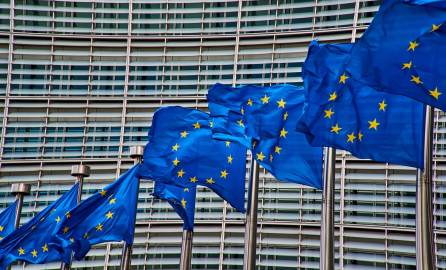Using aid as the main incentive for democratic reform is not enough and real entrenched democratic values can only be achieved by employing a whole range of economic and diplomatic means, say experts.
Panellists at a recent event in Brussels gave a number of recommendations on how the European Union might have more success in supporting democracy in Partner countries, including setting more realistic goals and dropping its reliance aid only.
“You cannot bring about democracy in developing countries just on the basis of financial incentives,” said Geert Laporte of ECDPM and panellist at a special event to mark International Day of Democracy on the 14 September 2012.
“For too long we have always believed that official development assistance, that aid, would incentivise different types of regimes, different types of governments to reform,” said Mr Laporte. “But now we know much better.”
The event, ‘EU Democracy Support and Engagement with Political Parties’, was organised by George Dura of EuropeAid Unit D1 together with the European External Action Service, or EEAS, to take stock of the EU’s policies and approach to democracy support and discuss options for its future development.
The EU is committed to the respect of democratic principles and human rights as part of the Commission’s ‘Agenda for Change’, adopted in 2011. EuropeAid is increasingly applying these principles in its overseas development, results of which are available in the June 2011 report ‘Delivering on Democracy’.
The September panel discussion focused on what the EU could do better to support democracy in partner countries and the role political parties could play.
Mrs Maria Leissner, Secretary General of the Community of Democracies agreed with fellow-panellist Mr Laporte.
“Some of the instruments that the EU have used – such as the government tranches – have not been very productive,” said Mrs Leissner. “The EU would need to stop thinking about how we can punish and exclude countries and governments that we do not like and instead focus on how we can support actors and processes.”
Mr Laporte went further offering alternate ways in which international actors like the EU could entrench democracy.
“We need to look at what can incentivize governments that are relatively unwilling to bring about reforms and here I’m thinking about all kinds of diplomatic efforts, maybe also trade related methods, issues that relate to mobility of people from developing countries to the European Union,” said Mr Laporte. “Maybe there are other incentives that we should play much more in a relationship with partner countries in the South.”
Furthermore, Mr Laporte recommended that the EU takes efforts to build greater consistency into their democracy-related activities, accepting the EU particular position as an institution on many parts and some 27 Member States, all with distinct roles and possibly agendas.
“It is not always easy to identify the role division between these [EU] institutions, but at the same time you have the individual member states who all pursue their own policies and the policy of the UK might be very different from the policy of France, for example in Africa,” said Mr Laporte. “Africans, they see this, and they see this inconsistency and they are also quite allergic to the normative, bit patronising, kind of approach that the European Union is adopting.”
One area the EU has identified for action is in offering support to political parties, according to Mr Dura.
“We have been involved as the EU in supporting political parties but we haven’t done it very systematically over the years and it’s been a part of our democracy support, an aspect that has so far been a little neglected when we compare it to support to parliament, media and civil society,” said Mr Dura.
“We realise increasingly, also following events in the Arab world, how important it is to have democratic political parties – and viable political parties – to have sustainable transitions to democracy,” he added. “They have to become partners in democratic transition [and]… fulfil their roles in society, in linking citizens to political institutions,” he concluded.
Underpinning all the presentations at the International Democracy Day event, was a firm belief in the importance of understanding the context and actors in the EU’s partner countries.
This fits well with the EC’s prioritising of conducting Political Economy Analyses at delegation level.
“We should try to identify the actors and the drivers of change and these are not necessarily the ones that are in the formal institutions as we have seen with the Arab Spring revolution – they are sometimes dissidents, they are sometimes internet people, they are people who are not always well organised but they are a people who have a major mobilisation force,” said Mr Laporte.
Conducting a Political Economy Analysis is a valuable means of developing the capacity of delegation staff and ensuring the EC programmes accommodate and respect the needs and constraints of the partner country.
“This is the challenge of the Political Economy Analysis, to really identify the actors and the drivers of change and to understand much better the context of these societies,” said Mr Laporte. “Once you have done this, once you have done that homework, you can definitely better apply your lessons because we have plenty of lessons of all these evaluations, excellent lessons, so let’s try to apply these.”
Have a look at EU projects on Democracy, and discuss them in the Public group on Democracy on capacity4dev.eu.
This collaborative piece was drafted with input from George Dura, Maria Leissner and Geert Laporte with support from the capacity4dev.eu Coordination Team.

Log in with your EU Login account to post or comment on the platform.